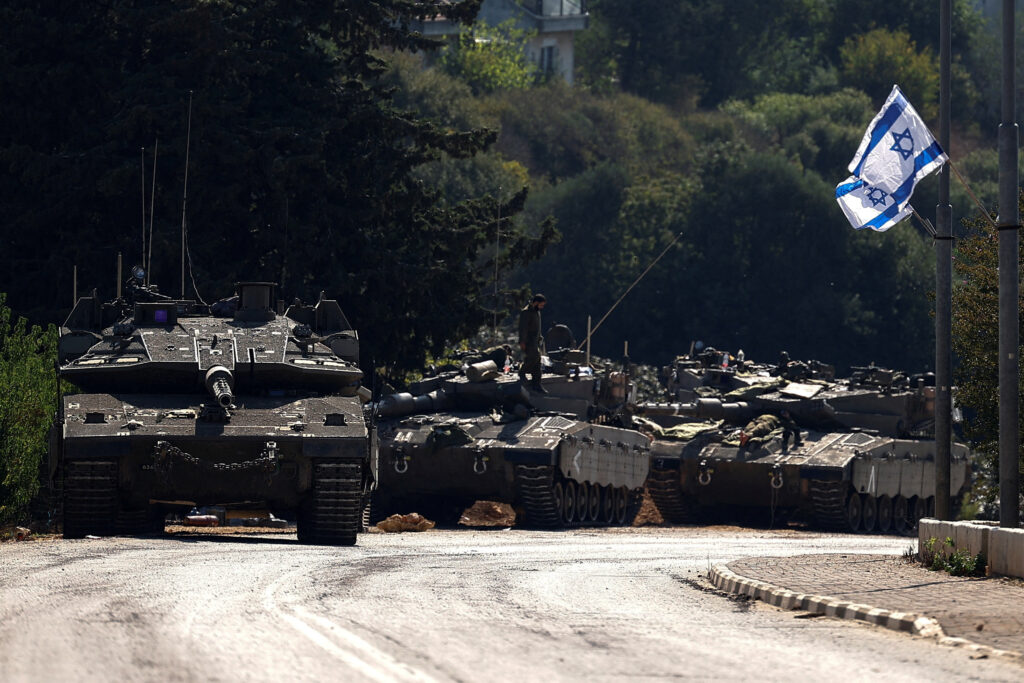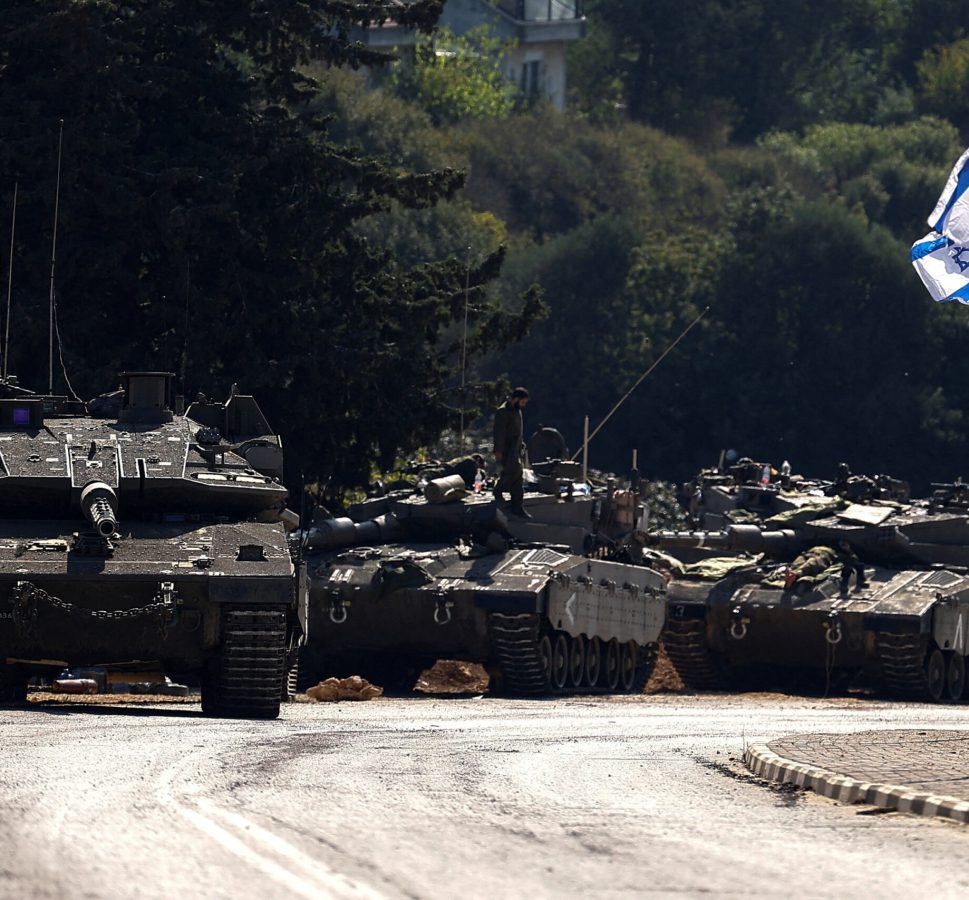
Israel accused Iran, Hezbollah’s backer, of orchestrating attacks to divert Israel’s focus from the ongoing Gaza conflict.
Israeli tanks are seen on a road near Israel’s border with Lebanon, in northern Israel, October 12, 2023.
Tensions along the northern border of Israel with Lebanon have escalated, prompting the Israeli military to initiate the evacuation of 28 villages amid rising hostilities with Hezbollah militants. The move comes after an Israeli civilian and a soldier lost their lives in a missile attack from Lebanon on Sunday.
The deadly incident unfolded when anti-tank missiles were fired from Lebanese territory, striking one of the border villages and a military post. In response, the Israeli military carried out strikes targeting Hezbollah military sites and accused Iran, Hezbollah’s backer, of orchestrating attacks to divert Israel’s focus from the ongoing Gaza conflict.
Iran, in return, issued a warning to Israel, cautioning about the potential for a regional conflict if it continued its retaliation against the Palestinian territory following the recent assault by Hamas. Hezbollah, Lebanon’s most potent military force, possesses long-range rockets capable of reaching deep into Israeli territory and previously engaged in a month-long war with Israel in 2006.
The Israeli Defense Forces (IDF) announced on Monday an emergency plan to evacuate all civilians residing within a 2km (1.2 miles) radius from the Lebanese border, offering accommodations in state-funded guest houses. However, numerous villages near the border are already sparsely populated, as residents took the initiative to relocate southward, not waiting for official evacuation orders.
As a result, the only remaining individuals in these communities are soldiers and members of local security teams who stayed behind to assist. These villages are situated so close to the border that the Israeli fortified fence can be seen, and in some instances, Hezbollah observation posts on the Lebanese side are also visible.
Over the weekend, intense fighting occurred in multiple locations along the frontier as the IDF and Hezbollah exchanged fire. Israel reported its first civilian casualty in the current violence when a man in his 40s was killed in an anti-tank missile attack on the village of Shtula. Subsequently, an Israeli soldier, Lt. Amitai Granot, was killed in another missile attack on a military post.
During the clashes, a rocket hit the headquarters of the United Nations peacekeeping force in Lebanon (Unifil) in the city of Naqoura, though no injuries were reported. The IDF responded by targeting Hezbollah military infrastructure and reported that nine rockets were fired from Lebanon into Israeli territory, with five intercepted.
The recent tensions began with an incident last Monday when three Israeli soldiers were killed in a confrontation with militants from Palestinian Islamic Jihad who had crossed the border from Lebanon. Later that day, the IDF responded by targeting sites in Lebanon, resulting in the death of at least three Hezbollah militants. On Friday, a Reuters news agency cameraman was killed by shellfire on the Lebanese side of the border, prompting an investigation into the circumstances by the IDF.
While tens of thousands of additional soldiers have been deployed along the border in the past week, Israeli Defense Minister Yoav Gallant stressed on Sunday that Israel did not desire a war in the north. He warned that if Hezbollah chose the path of war, it would face severe consequences, but if it exercised restraint, the situation would remain as it is.
Amid these developments, Iranian Foreign Minister Hossein Amir-Abdollahian conveyed a message to Israel through its allies, stating that Iran could not remain an observer if Israel did not cease its actions in Gaza. He also cautioned about the potential expansion of the conflict and the United States suffering “significant damages.”
The United States responded to the escalating situation by sending a second aircraft carrier strike group to the eastern Mediterranean Sea on Sunday as part of efforts to deter hostile actions against Israel and prevent the widening of the ongoing conflict following the attack by Hamas.






